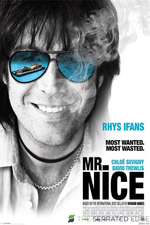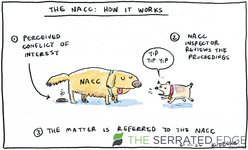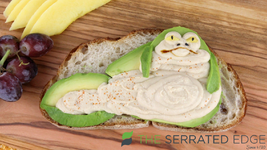Even when Moynihan ratted on him, Marks took the betrayal with good humour. He said he ignored a warning from a major Australian criminal that the rogue lord would become a police informer. Marks blamed himself for ignoring the obvious, saying if he saw Moynihan he would demand “he buys the next round”. |
|
Marks was close to three of Australia’s biggest crooks, Jack “The Fibber” Warren, Keith Albert “Silver” Collingburn and Laurence Edward “Joe the Boxer” McLean. |
|
“I like Joe (McLean) very much. I admired his wit and sense of adventure,” Marks said. |
|
“Yes, I knew Jack Warren. An older guy, a very amusing fellow, obviously a criminal.” He recounted a night in Manila with Warren, some nuns, homeless people and dwarf entertainers when they ended up in a five-star restaurant. The nuns hoed into the food, the dwarfs drank heroically, and the homeless bagged up all the seafood to take back to the streets. |
|
Years earlier he had beaten serious charges in Britain over a tug full of Mexican cannabis, telling the jury he was infiltrating the drug syndicate to stop them using the funds to arm the IRA. |
|
“I don’t think for one minute they (the jury) believed the defences presented to them. They just didn’t want us nice guys to spend countless years in jail for transporting beneficial herbs from one part of the world to another.” |
|
This time around, Marks planned to use a cover story involving the sinister Australian merchant bank Nugan Hand, the CIA and MI6. Far from being a drug smuggler he was a double agent, about to expose the CIA’s connection to a corrupt Australian bank. |
|
“I was convinced this Australian defence could work,” he said. “It wasn’t even as bizarre as the successful Mexican secret agent defence. But did American juries have a sense of humour?” |
|
The trouble was some of his closest connections agreed to testify against him in return for plea deals. He was facing 40 years, and so he agreed to plead guilty in exchange for a reduced sentence. He would serve seven years. |
|
Eventually, Howard said he needed to terminate our conversation. “John, there is a bloke here who would kill for the phone. And I mean that literally.” |
|
Not that much later I was called back into the same boss’s office at The Sunday Times. Seems he hadn’t been frank with me about the lack of interest in Marks. In fact, they were planning a book on him. |
|
Turns out Howard thought I was part of the research team. |
|
After Marks’ did his time, we kept in touch. Me because he was such an interesting storyteller and he because he wanted publicity for the many books he wrote. |
|
He settled in Majorca, not far from Australian businessman turned fugitive Christopher Skase. Marks died in 2016. |
|
As my stint at The Sunday Times was ending I was in dire need of some entertaining company and there is no more entertaining company than former police reporter and accomplished foreign correspondent Lindsay Murdoch. Lindsay was based in Singapore where I intended to stop on my way home. |
|
I rang him suggesting we get on the beers over a feed of chilli crab. (He was actually busy on assignment.) |
|
The reporters in the small Insight office were silent. I would later suspect they were not aware of the excellent work of Lindsay, but were very aware of another Murdoch clan, Rupert, Lachlan and James – the owners of their newspaper. |
|
Would their lack of collegiate spirit now turn around and bite them like a red-bellied black snake? Would their careers disappear like a plate of chilli crab? |
|
I asked the managing editor’s secretary if there was a chance I could tour their weekly magazine’s headquarters, which was offsite. Surprisingly, the answer came back, an enthusiastic yes, and even more surprisingly I was told there would be a car waiting for me. |
|
Outside the Wapping office was a Rolls-Royce with a uniformed chauffeur. It was for me. |
|
Sometimes being mistaken for someone else has its advantages. |
|













